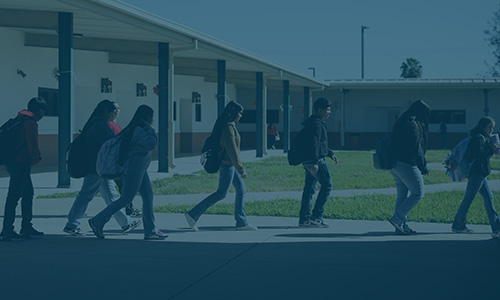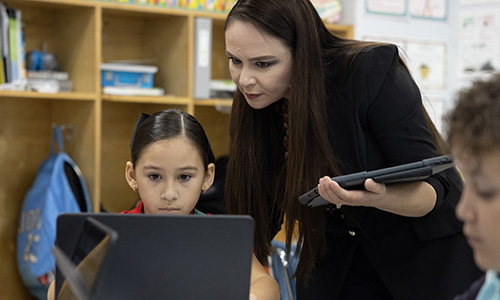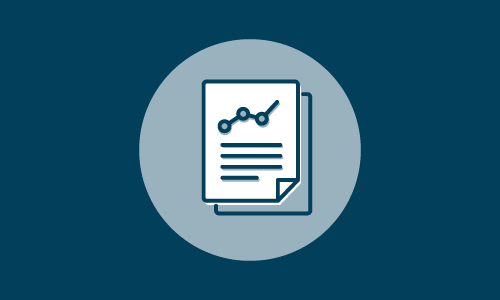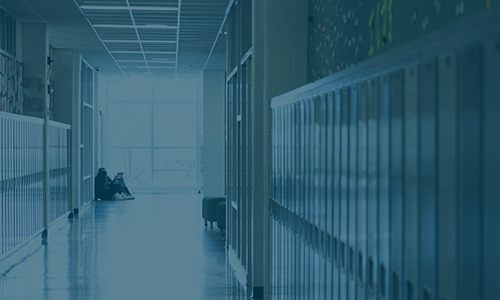Media mention
NWEA data predicts students could be up to a year behind in math in the fall
April 2020
Education Dive

Description
New research by NWEA, a nonprofit assessment provider, predicts that because of school closures, some students could be as much as a year behind in math when they start school in the fall.
View the sourceRelated Topics


Integrating Literacy and Science: A Powerful Partnership for Student Success
This research brief explores the connection between science and literacy instruction documenting the benefits of integrated science and literacy instruction at the elementary level, and highlighting the benefits of integrating instruction while providing research-based guidance on how to effectively do this.
Topics: Growth, Equity, Informing instruction, Math & STEM


Practitioner’s Guide to Integrating Literacy and Science
This is the accompanying guide to the research brief, Integrating Literacy and Science: A Powerful Partnership for Student Success, which describes four key components of effective integration of literacy and science instruction at the elementary level. In this practitioner’s guide, we provide sample lessons to demonstrate each of these components in action in an elementary classroom.
Products: MAP Growth
Topics: Equity, Growth, Informing instruction, Math & STEM


COVID’s impact on science achievement: Trends from 2019 through 2024
This new report examines the pandemic’s impacts on academic achievement and gain in Science and continues ongoing research by NWEA® analyzing the degree to which the COVID-19 pandemic, and its associated school closures, influenced student learning.
By: Susan Kowalski, Scott J. Peters, Megan Kuhfeld, Gustave Robinson, Karyn Lewis
Products: MAP Growth
Topics: COVID-19 & schools, Equity, Growth


Technical Brief – COVID’s impact on science achievement: Trends from 2019 through 2024
This is the accompanying technical brief to the new report (Covid’s impact on science achievement: Trends from 2019 through 2024) that examines the pandemic’s impacts on academic achievement and gain in Science and continues ongoing research by NWEA® analyzing the degree to which the COVID-19 pandemic, and its associated school closures, influenced student learning.
By: Susan Kowalski, Scott J. Peters, Megan Kuhfeld, Gustave Robinson, Karyn Lewis
Products: MAP Growth
Topics: COVID-19 & schools, Equity, Growth


Reconciling Recent Evidence on Academic Recovery in the US from 2022 to 2023
A new analysis comparing latest NWEA and the Education Recovery Scorecard results to understand pandemic recovery, so far, and look at differences and similarities in those results.
By: Dan Dewey, Megan Kuhfeld, Erin Fahle, Tom Kane, Sean F. Reardon
Products: MAP Growth
Topics: COVID-19 & schools, Equity, Growth


NWEA research report examining the impacts of the pandemic’s disruptions to learning and the status of academic recovery. This report features data from the 2023-24 academic year and underscores that unfinished learning continues to be a challenge due to lower achievement gains compared to pre-pandemic trends. This report is part of series tracking the on-going impacts.
By: Karyn Lewis, Megan Kuhfeld
Products: MAP Growth
Topics: COVID-19 & schools, Equity, Growth


NWEA research report examining the impacts of the pandemic’s disruptions to learning and the status of academic recovery. This report features data from the 2023-24 academic year and underscores that unfinished learning continues to be a challenge due to lower achievement gains compared to pre-pandemic trends. This report is part of series tracking the on-going impacts.
By: Karyn Lewis, Megan Kuhfeld
Products: MAP Growth
Topics: COVID-19 & schools, Equity, Growth


